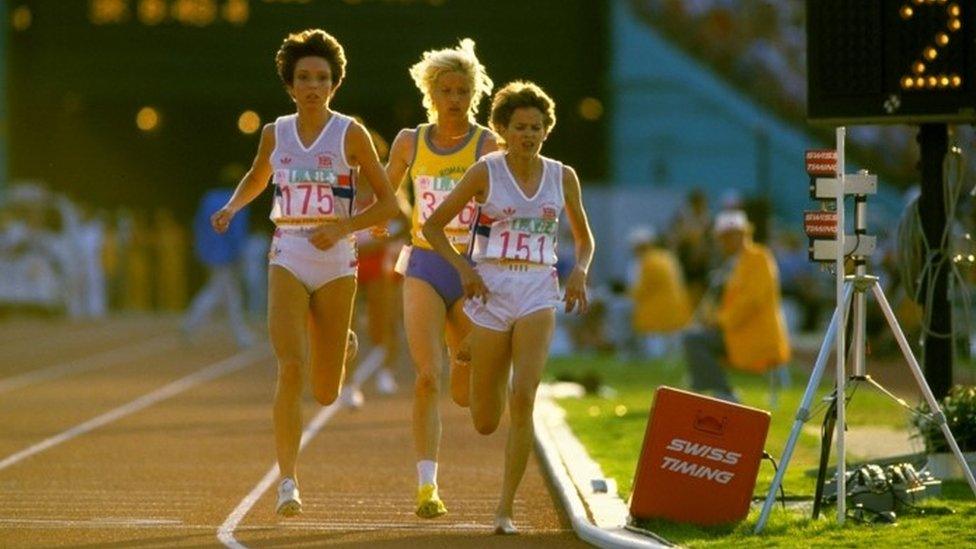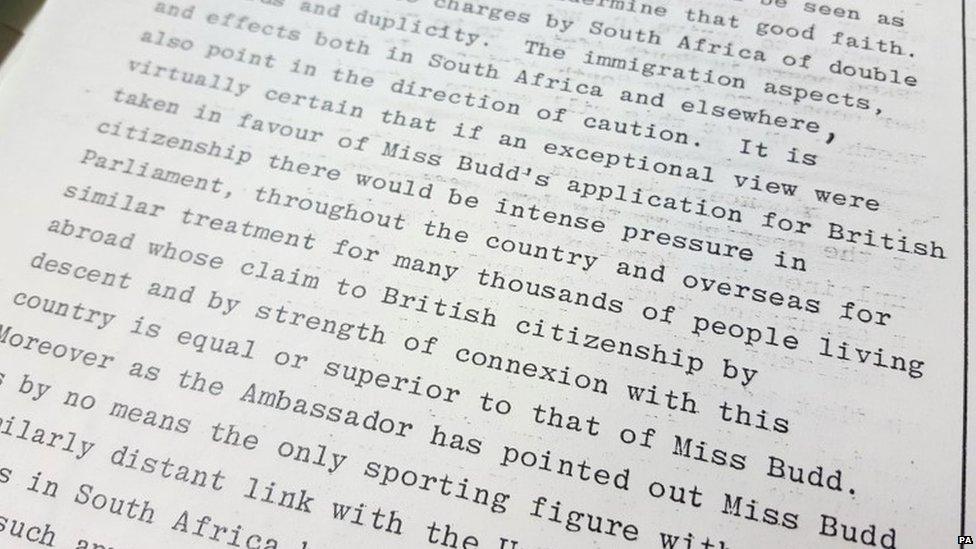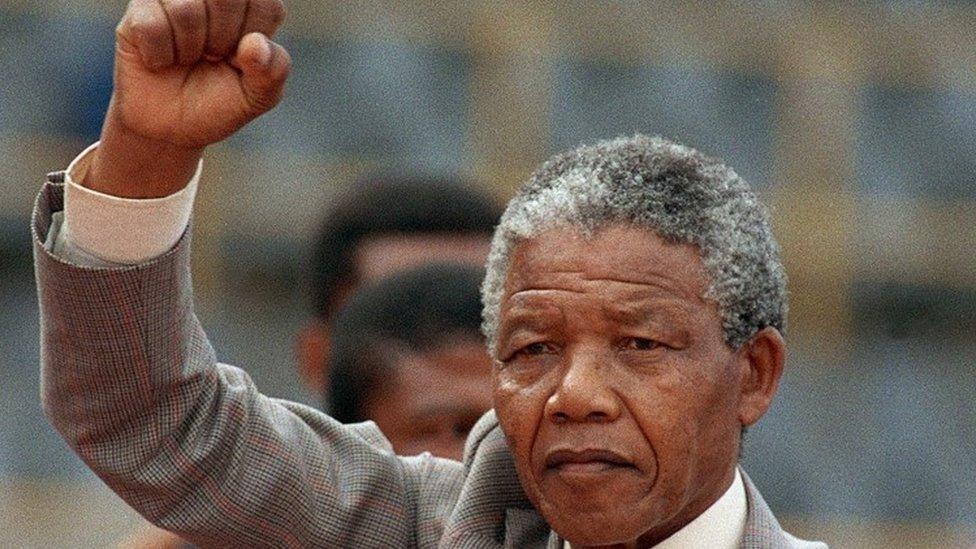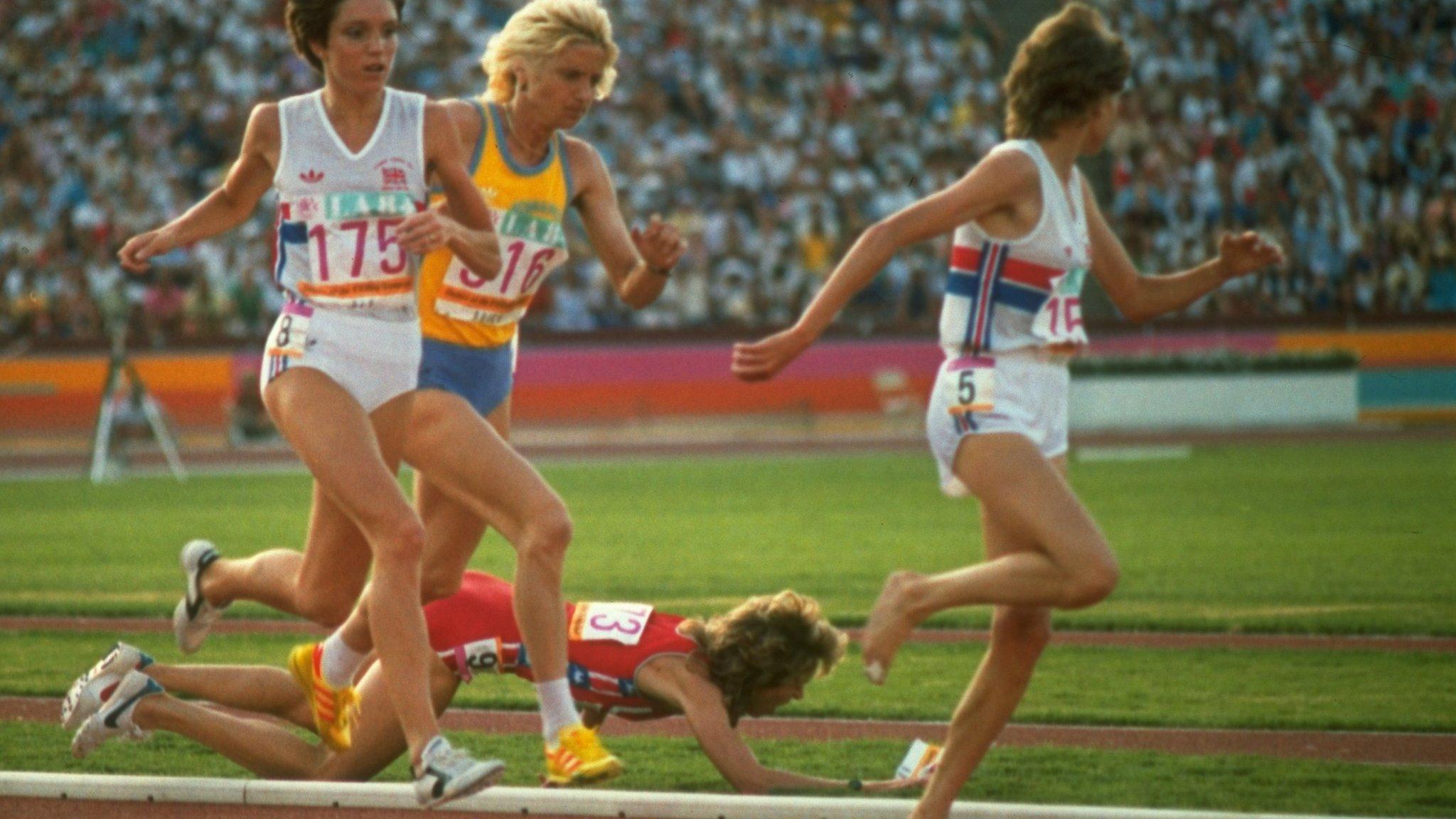Ex-runner Zola Budd triggered government row, archives show
- Published

Zola Budd (R) competing during the 3,000m in the 1984 Olympics
A campaign to fast-track British citizenship for South African runner Zola Budd triggered a major government rift, newly released documents show.
The Foreign Office warned the Home Office against giving the teenage athlete "special treatment" to enable her to compete at the 1984 Olympics.
Ministers said any circumvention of the ban on South Africans competing may hurt the UK's anti-apartheid stance.
But the Home Office said Budd's "talent" made the case a priority.
Budd, who set a world record for the 5,000m at the age of 17 and became a household name for running barefoot, registered as a British citizen in April 1984 in time for her to compete at the Los Angeles games four months later.
She ran for Britain in the 3,000m - where she tangled with the American Mary Decker in one of the most famous moments in Olympic history and ultimately finished down the field.
A media campaign was launched to encourage Zola Budd's father to urge her to apply for British citizenship, by virtue of her paternal grandfather being British, thereby bypassing the boycott on South African athletes taking part in international competition because of its apartheid policy.
'Damaging'
Previously unseen files, released by the National Archives, reveal wrangling over the issue broke out at cabinet level with the then Foreign Secretary Geoffrey Howe urging the then Home Secretary Leon Brittan to delay the decision on whether to grant the runner a British passport.

Granting Budd citizenship could be seen as "double standards", ministers warned
In a draft letter to Mr Brittan in March 1984, in which Prime Minister Margaret Thatcher was copied in, Mr Howe wrote: "I think the consequences for the government could be very damaging if we laid ourselves open to the charge that this young girl was receiving special treatment, gifted and exceptional though she may be."
The letter warned that the move could lead to possible withdrawals by other nations from the Olympic Games and the 1986 Edinburgh Commonwealth Games, and suggested it would undermine the Gleneagles agreement, a Commonwealth pact discouraging sporting contact with South Africa and be seen as a "device to circumvent anti-apartheid politics".
It added: "To give exceptional treatment to a South African national to enable her to avoid the sporting restrictions inflicted on her country and compete for Britain in the Olympics will be seen as a cynical move which will undermine that good faith.
"We will be open to charges by South Africa of double standards and duplicity."
Zola Budd, race and racing
The file reveals a raft of concerns from the Foreign Office about the case, with officials in South Africa being inundated with immigration inquiries from other people with similar claims on citizenship to Budd.
There were also concerns the government was "giving in to chequebook journalism" and commercial influences that had a stake in getting Budd to run in the Olympics, and that it was opening itself up to criticism by treating her as an exceptional case.
In a reply, Mr Brittan said he understood the "delicacy of the circumstances", but added:
"It would be very difficult to defend a delay which led to her (Budd) being unable to attempt to qualify for the United Kingdom for this Olympics unless, as a government, we were prepared to state publicly that we would not take account of her apparent talent in judging whether priority should be given to the handling of her case."
Zola Budd competed for South Africa at the 1992 Barcelona Olympics after the country was re-admitted to international competition following a referendum vote to end the apartheid system and the commitment to hold the country's first multi-racial election.
- Published24 August 2016

- Published28 June 2016
